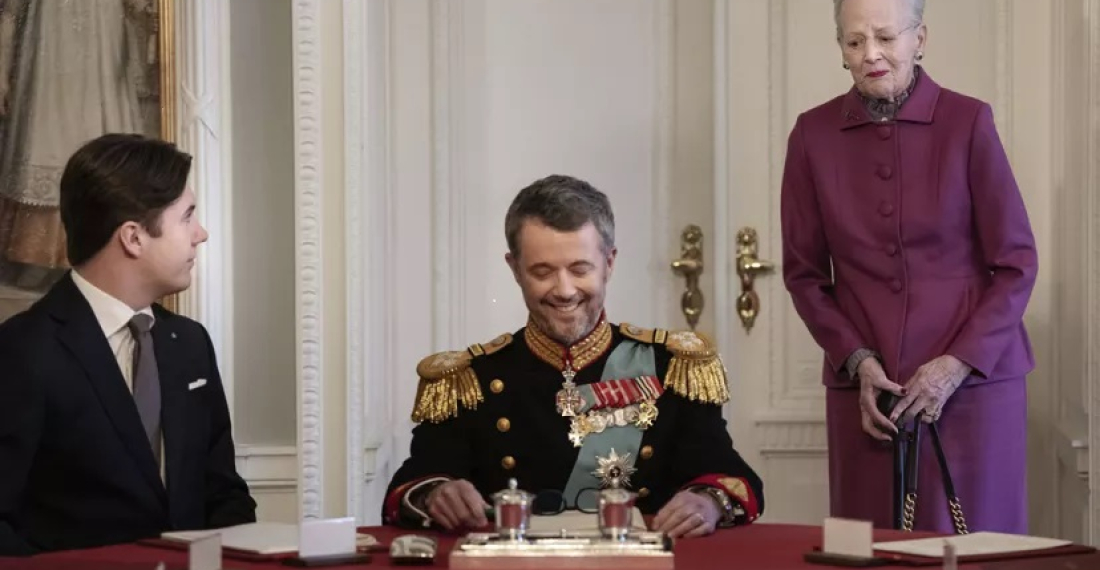Queen Margrethe II of Denmark signed a historic abdication on Sunday, thus enabling her son to become the new Danish monarch as Frederik X. The accession of the new King was announced by the Danish Prime Minister to massive crowds turned out to rejoice in the throne passing from a beloved monarch to her popular son.
Margrethe, 83, is the first Danish monarch to voluntarily relinquish the throne in nearly 900 years. Many thousands of people gathered outside the palace where the royal succession was taking place, the mood jubilant as the Nordic nation experienced in first royal succession in more than a half-century - and one not caused by the death of a monarch.
Wearing a magenta outfit, Margrethe signed her abdication during a meeting with the Danish Cabinet at the Christiansborg Palace, a vast complex in Copenhagen which houses the Royal Reception Rooms and Royal Stables as well as the Danish Parliament, the prime minister’s office and the Supreme Court.
After signing the document at a table around which royals and members of the Danish government were seated, she rose and gestured to her son to take her place, adding “God save the king” as she left the room.







